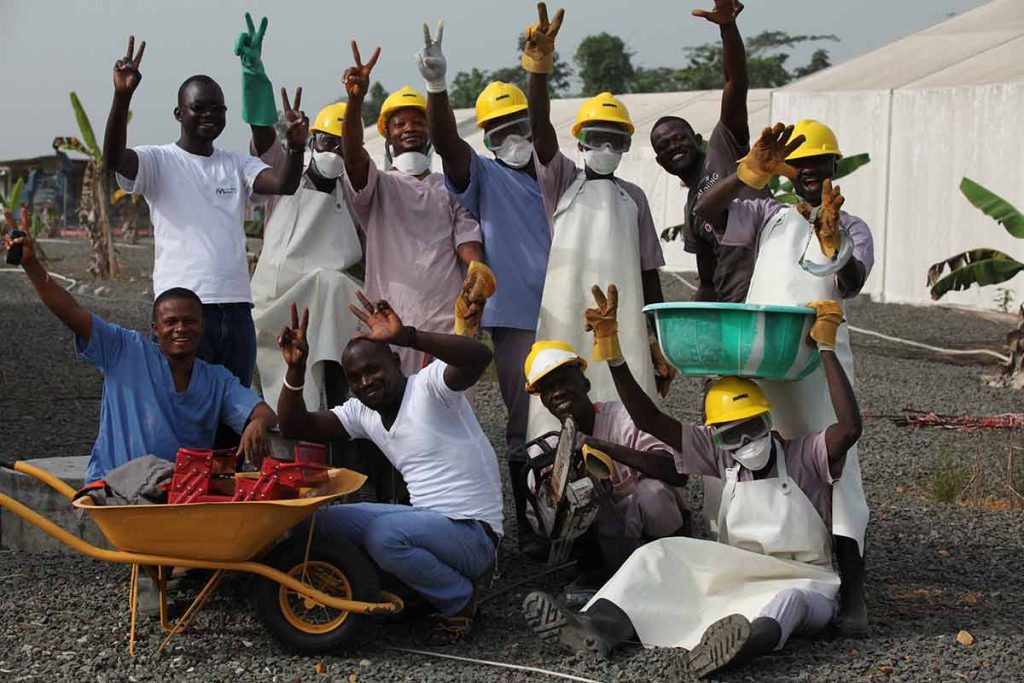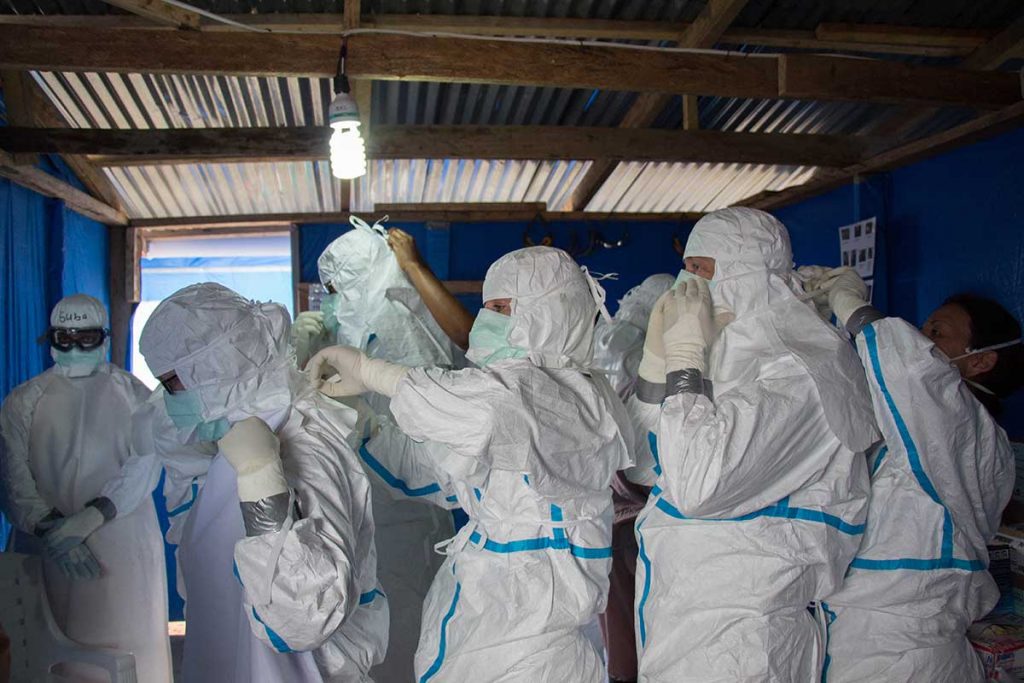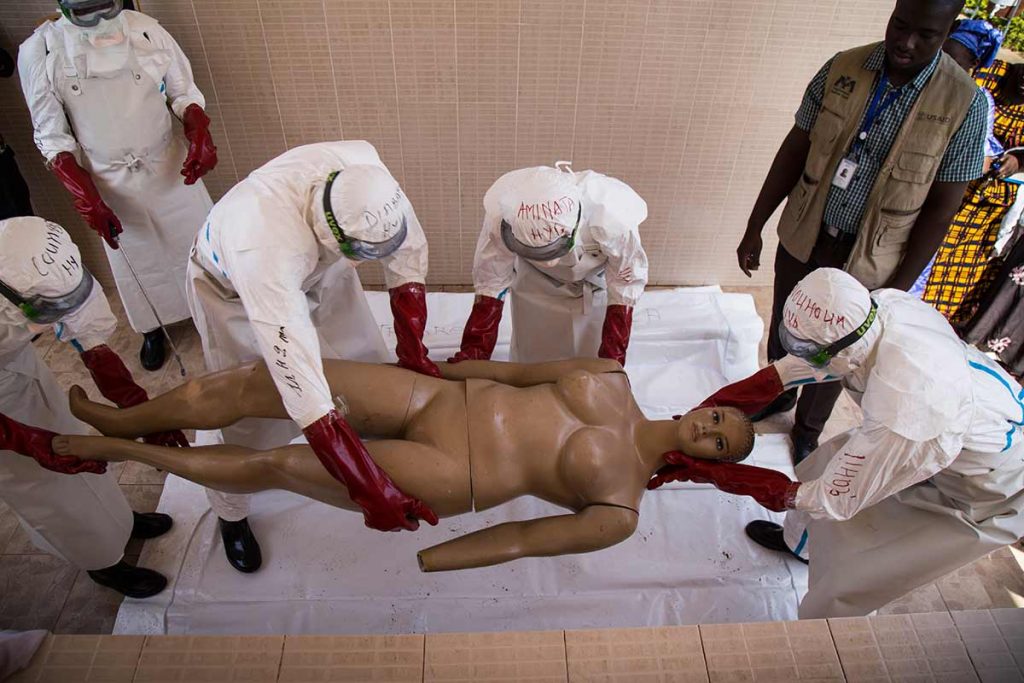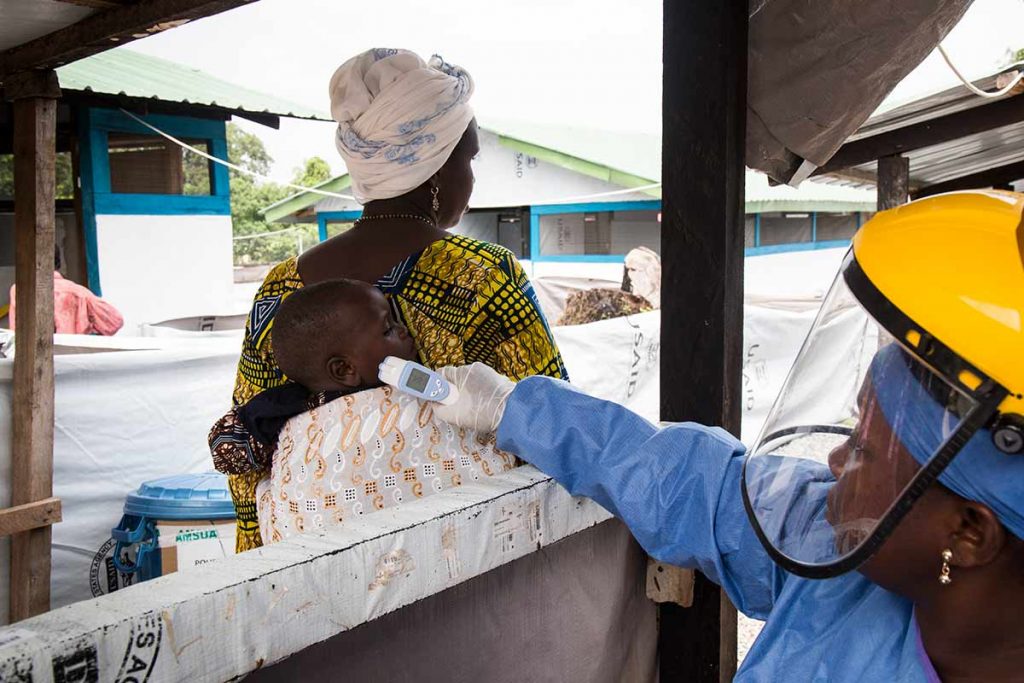After two years, the largest and deadliest Ebola outbreak in history has drawn to a close. The disease’s chain of transmission in Sierra Leone ended in November, followed by Guinea in December. On January 14th, Liberia, which has seen two resurgences of the virus since it was first declared Ebola-free in May 2015, achieved that status once again—and along with it, all of West Africa. The milestone comes after a two-year battle with the virus that resulted in more than 15,000 confirmed cases and 11,000 deaths, according to World Health Organization estimates.

International Medical Corps responded to the outbreak in all three countries, which accounted for the majority of all Ebola cases, and also helped fortify health systems in neighboring Mali and Guinea-Bissau against the virus. We were one of the first international organizations to treat Ebola patients at the source of the outbreak in West Africa, operating five treatment facilities in Liberia and Sierra Leone. Together, our Ebola treatment centers cared for more than 460 Ebola-positive patients.

International Medical Corps Ebola staff don personal protective equipment before entering the confirmed patient ward at the Bong County ETU in October 2014, the height of the outbreak.
This milestone is an important achievement to be celebrated; however, the danger of Ebola’s return remains and International Medical Corps’ work in West Africa is not over. The virus is now considered endemic to West Africa and could keep reappearing, as it did in Liberia. The unpredictable nature of Ebola means that health systems in West Africa must stay diligent in screening for potential cases and be prepared to respond. Our focus now is to prevent a recurrence of Ebola—to maintain a “durable zero”—by continuing to train local health care workers, providing them with the skills and knowledge needed to prevent another large-scale Ebola outbreak and be better prepared to fight the disease if it should return.

Throughout the epidemic, International Medical Corps trained thousands of local frontline health care workers, including water and sanitation specialists, psychosocial professionals, and other first responders in Ebola case management. Such training has helped strengthen health systems in the three hardest hit nations and has left the region better-prepared to address future outbreaks should they occur.
International Medical Corps also established screening and referral units (SRUs) at health care facilities in Liberia, Sierra Leone, and Guinea. The SRUs evaluate each person for Ebola-like symptoms before they are allowed to enter to the clinic or hospital. If someone is suspected to have the virus, they are quickly isolated and referred to the nearest unit for testing and possibly treatment.

While we have reached zero cases in West Africa, the severity of the Ebola outbreak has left many needs in its wake. There are an estimated 17,000 Ebola survivors, many of whom face stigma and health complications. Even though challenges undoubtedly lie ahead for West Africa, what remains is the hope that an Ebola outbreak of this size in West Africa will not happen again.